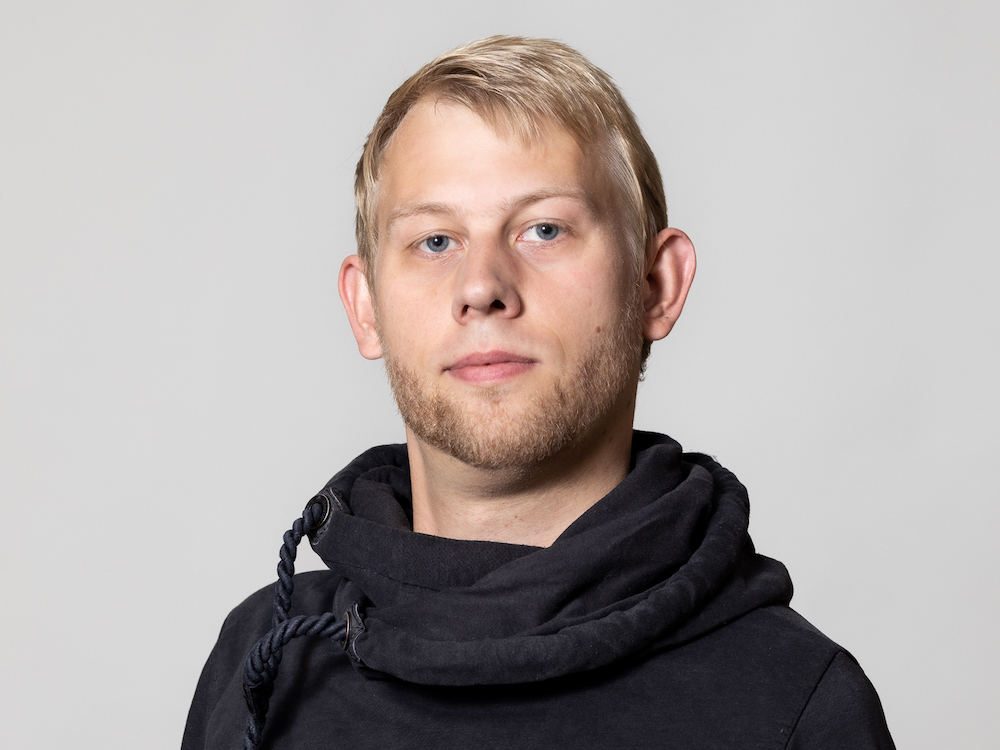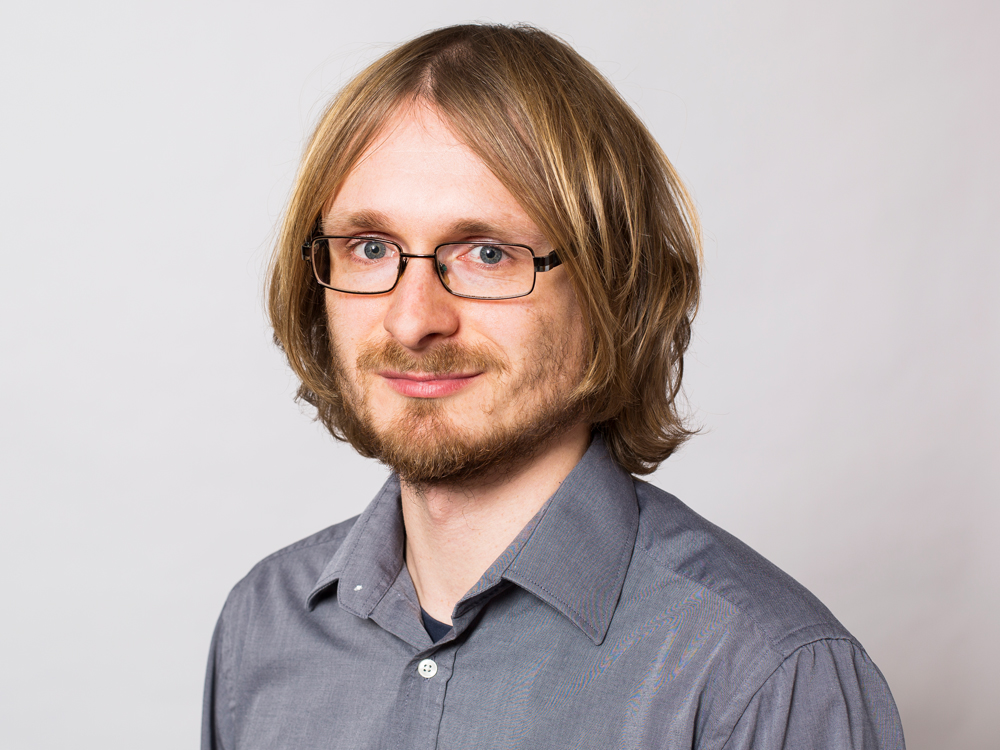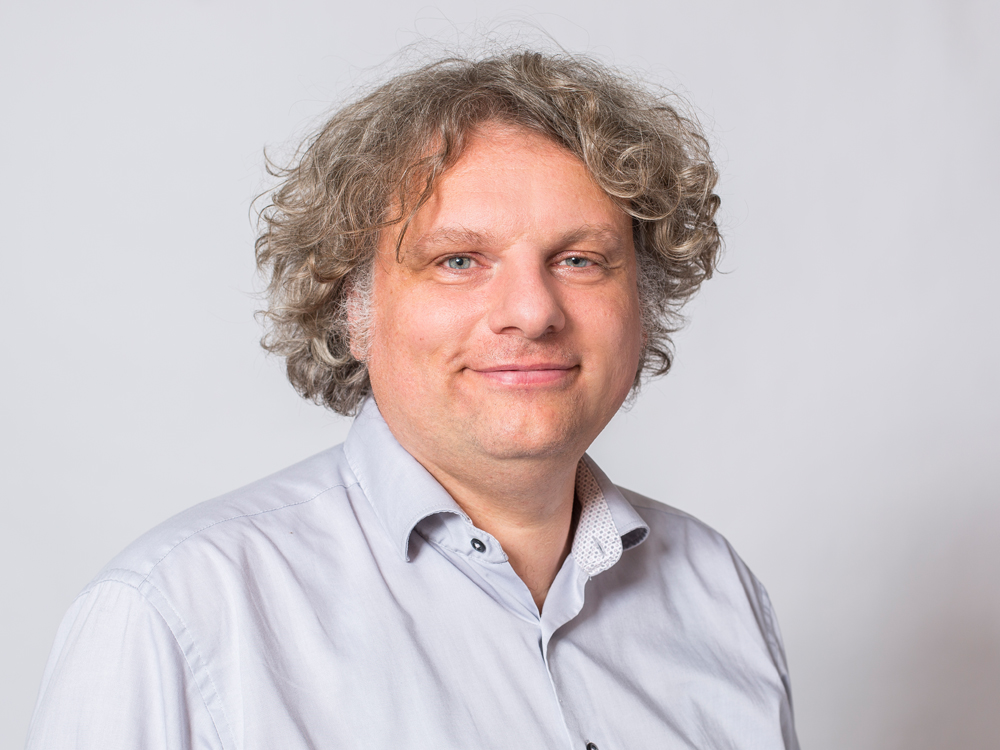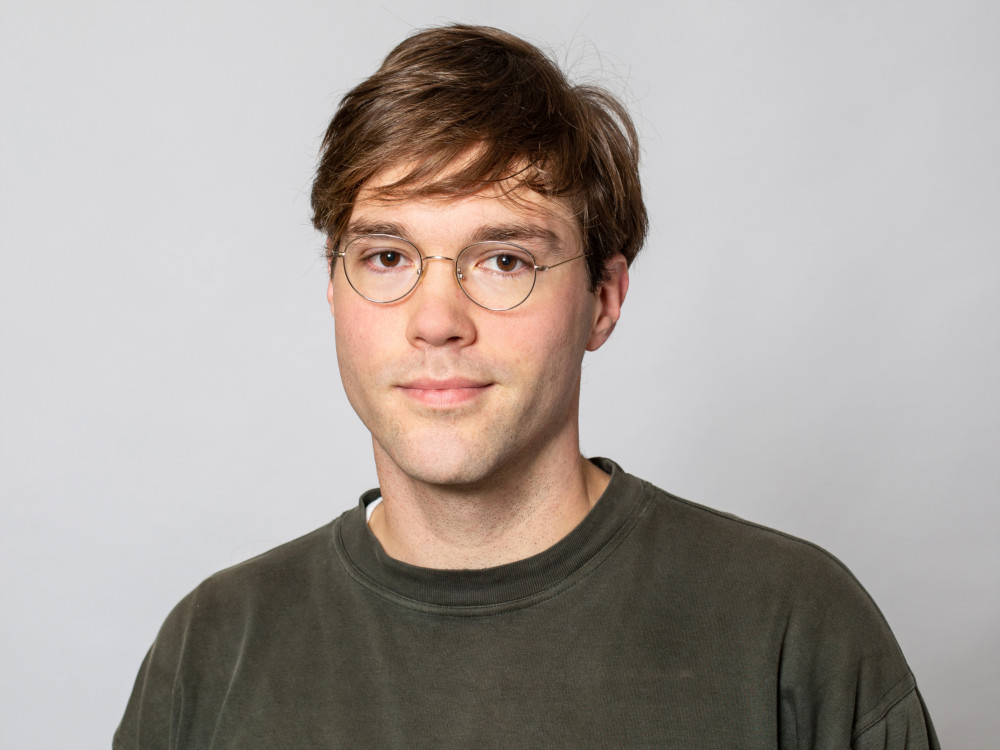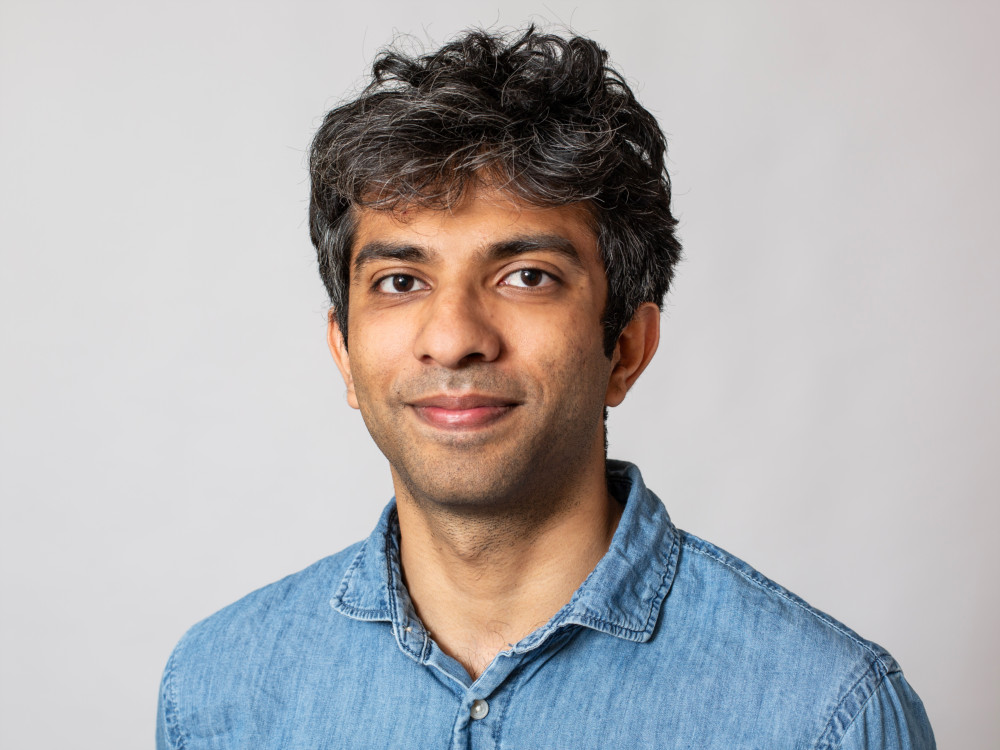Markus Kantner, Thomas Koprucki
Coworkers:
Lasse Ermoneit, Lutz Mertenskötter, Abel Thayil
Associated Members:
Burkhard Schmidt
Former Members:
Oliver Marquardt
The focus platform SemQuTech is part of the research groups Partial Differential Equations and Laser Dynamics. It contributes to the main application area Nano- and Optoelectronics in a joint activity with the research group Numerical Mathematics and Scientific Computing and the Leibniz-Group Numerical Methods for Innovative Semiconductor Devices.
Overview
The currently unfolding "second quantum revolution" aims at bringing semiconductor quantum technologies from the lab to real world applications. For the design of components for novel quantum sensors and quantum computing devices, new device-scale simulation approaches are required that go beyond traditional TCAD (technology computer-aided design) tools. Our goal is to combine theory of open quantum systems and modeling approaches from electrical engineering with methods from applied mathematics and to bring them into practice in collaboration with application partners. A particular focus in modeling is on the accurate treatment of noise and random fluctuations, as these stochastic influences often determine the fundamental limitations for quantum devices.
Simulation of Hardware Components of Semiconductor Quantum Computers
Spin-qubits in semiconductor quantum dots (QDs) are major candidates for the realization of universal quantum computers. Ongoing advances in the growth of isotopically purified 28Si/SiGe heterostructures have enabled exceptionally long coherence times. The compatibility with industry standard fabrication technology opens up excellent prospects for scaling up silicon-based semiconductor quantum processors to very large numbers of qubits. Recently, small-scale Si/SiGe QD-based quantum processors have been demonstrated, which execute one- and two-qubit logic gates as well as initialization and read-out operations with high fidelity using all-electrical control. Latest concepts for scalable architectures envision 2D qubit arrays interconnected by coherent quantum links to distribute entanglement over longer distances and to provide sufficient space for QD wiring and (classical) on-chip control electronics. We aim at modeling and simulation of a Si/SiGe quantum bus for coherent qubit shuttling in realistic, multi-dimensional device geometries. Moreover, we seek to develop optimal control protocols for qubit shuttling in the presence of material and fabrication imperfections.
Software packages: PDElib.jl, Wave Packet, TetGen, SPHInX
Collaborations: RWTH Aachen Universty, JARA-FIT Quantum Information, Leibniz Institute for Crystal Growth (IKZ) Berlin, TU Berlin, TU Munich
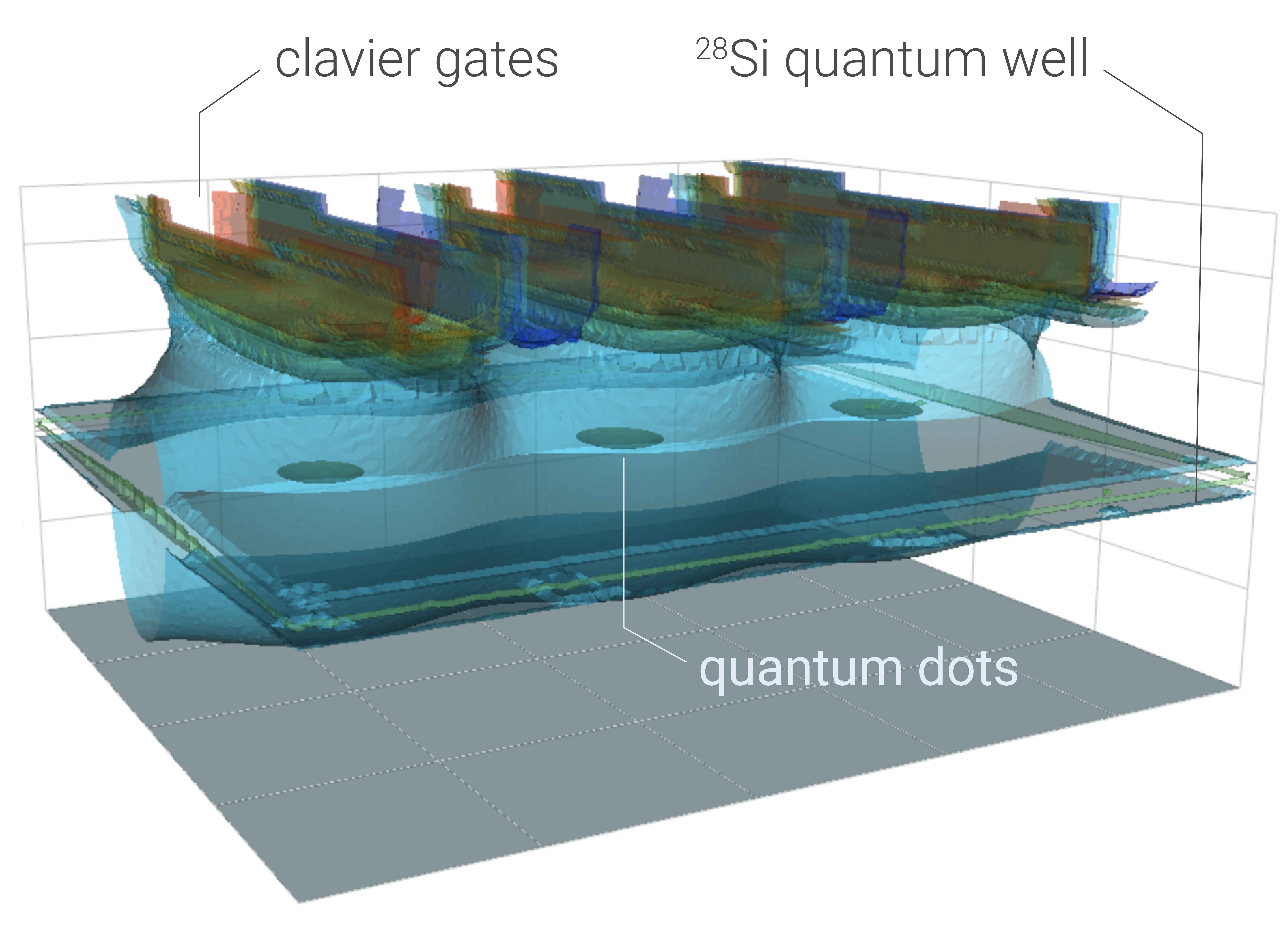
Stochastic Modeling of Narrow-Linewidth Semiconductor Lasers
Narrow-linewidth lasers are core elements of coherent communication systems, optical atomic clocks, matter-wave interferometers, ion-trap quantum computers and gravitational wave detectors. The spectral width of the emitted laser light is essentially determined by its frequency noise power spectral density (FN-PSD), that is influenced by numerous stochastic processes. The standard (Markovian) laser linewidth theory is restricted to Gaussian white noise (in particular spontaneous emission of photons into the laser mode), which predicts a spectrally flat FN-PSD that is associated with a Lorentzian lineshape and the so-called intrinsic linewidth. A more realistic description of ultra-narrow linewidth lasers, however, requires the inclusion of additional non-Markovian noise (1/f-type flicker noise) components to match the experimental observations. These colored noise processes lead to significant line broadening, but their modeling from first principles (i.e., quantum Langevin equations) is hardly accessible. We strive for a data-driven modeling approach to reconstruct a non-Markovian stochastic semiconductor laser model from experimental time series using data assimilation techniques. Based on improved stochastic models for semiconductor lasers, we aim to support the development of optimized diode lasers. Thereby, in addition to the spectral linewidth (high frequency stability), further key characteristics such as the wavelength tunability shall be improved.
Software packages: LDSL-Tool, ddfermi
Collaborations: Ferdinand-Braun-Institute Berlin, TU Berlin
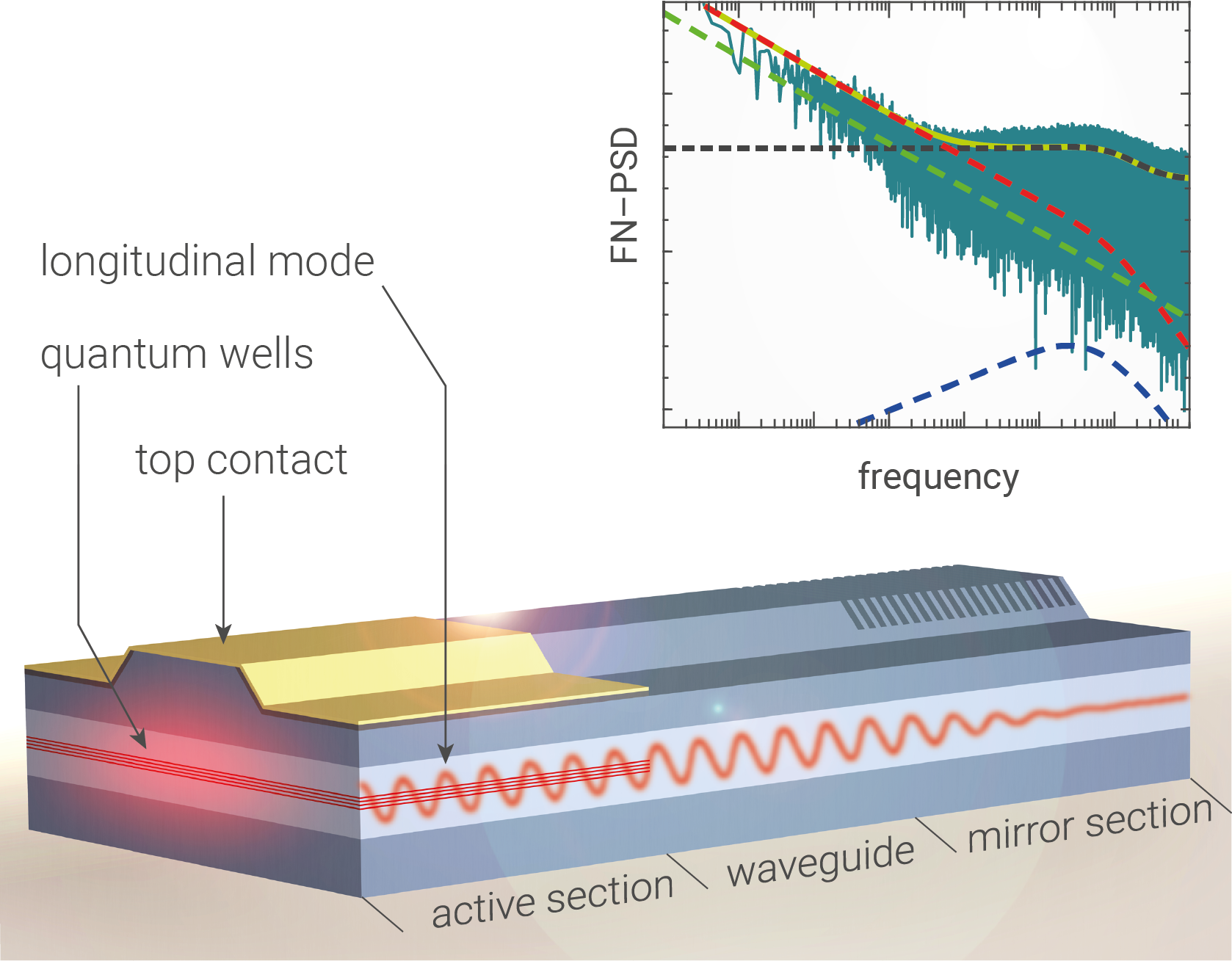
Hybrid Quantum-Classical Modeling of Quantum-Light-Emitting Diodes
Quantum light sources are key elements of future secure communication networks and optical quantum computers, where single photons and entangled photon pairs are used as optical qubits for quantum information processing tasks. Semiconductor quantum dots have been identified as ideal optically active elements for such devices, as they are compatible with existing semiconductor technology and can be directly integrated into photonic resonators by standard manufacturing techniques. This allows to precisely tailor the electro-optical environment of the quantum dots in order to control the interaction of matter with light. In the interest of compactness and scalability, electrically driven devices are highly desirable for practical applications. On the step from basic research to a mature technology, device engineers will need new simulation tools, which combine classical device physics with cavity quantum electrodynamics. We develop novel hybrid quantum-classical modeling approaches, that self-consistently couple quantum master equations (open quantum systems) with macroscopic carrier transport equations. Our approach enables a comprehensive device-scale simulation of quantum light-emitting diodes, ranging from a spatially resolved description of carrier injection to a characterization of non-classical photon statistics.
Software packages: ddfermi
Collaborations: TU Berlin, Zuse Institute Berlin
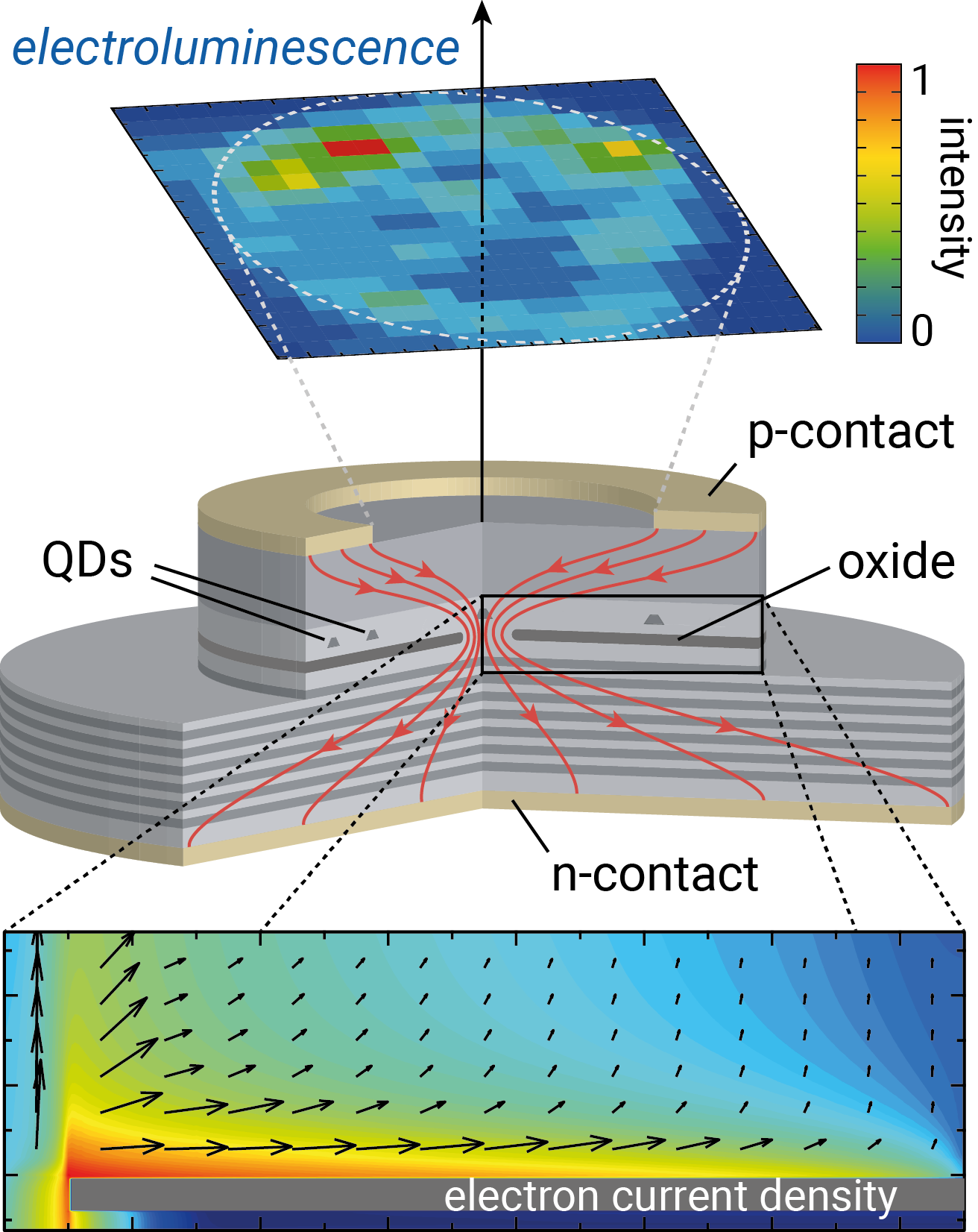
News
- 2024-07-08 – Guest: Caroline Lasser (TU Munich)
It is our pleasure to welcome Caroline Lasser (TU Munich) for a short-term research visit in our group. Caroline will give a talk in the Quantum Wednesday seminar series on variational Gaussian wave packets for numerical simulation of quantum dynamics. - 2024-06-24 – Guest: Jasper Riebesehl (Denmark Technical University)
We are happy to host Jasper Riebesehl as a guest in our group for one week. Jasper is a PhD student at the Department of Electrical and Photonics Engineering of the Technical University of Denmark (DTU, Kongens Lyngby) working in the research group Machine Learning in Photonic Systems. He will give a talk in the Quantum Wednesday seminar series on Kalman filtering for phase noise characterization in optical frequency combs. - 2024-05-21 – Quantum Optimal Control Workshop
We are co-organizing the research workshop Quantum Optimal Control – From Mathematical Foundations to Quantum Technologies from May 21–24 as a part of the Thematic Einstein Semester. - 2024-04-02 – Lindau Nobel Laureate Meeting (Physics)
Markus has been selected as a participant of the 73rd Lindau Nobel Laureate Meeting (Physics) taking place from 30 June – 5 July 2024. He has been nominated by the Leibniz Association and was succesfully selected for participation after a multi-stage selection process. - 2024-03-29 – Publication in IEEE Photonics Journal
Our paper Frequency Noise Characterization of Narrow-Linewidth Semiconductor Lasers: A Bayesian Approach has been accepted for publication in the IEEE Photonics Journal. - 2024-03-12 – Thematic Einstein Semester: Mathematics for Quantum Technologies
We are lead organizers of the upcoming Thematic Einstein Semester on Mathematics for Quantum Technologies (summer 2024) funded by the Einstein Foundation Berlin and the Cluster of Excellence MATH+. The Thematic Einstein Semester will include a series of workshops, seminars and an advanced lecture series on various topics related to mathematics for quantum technlogies. See the website for further details.
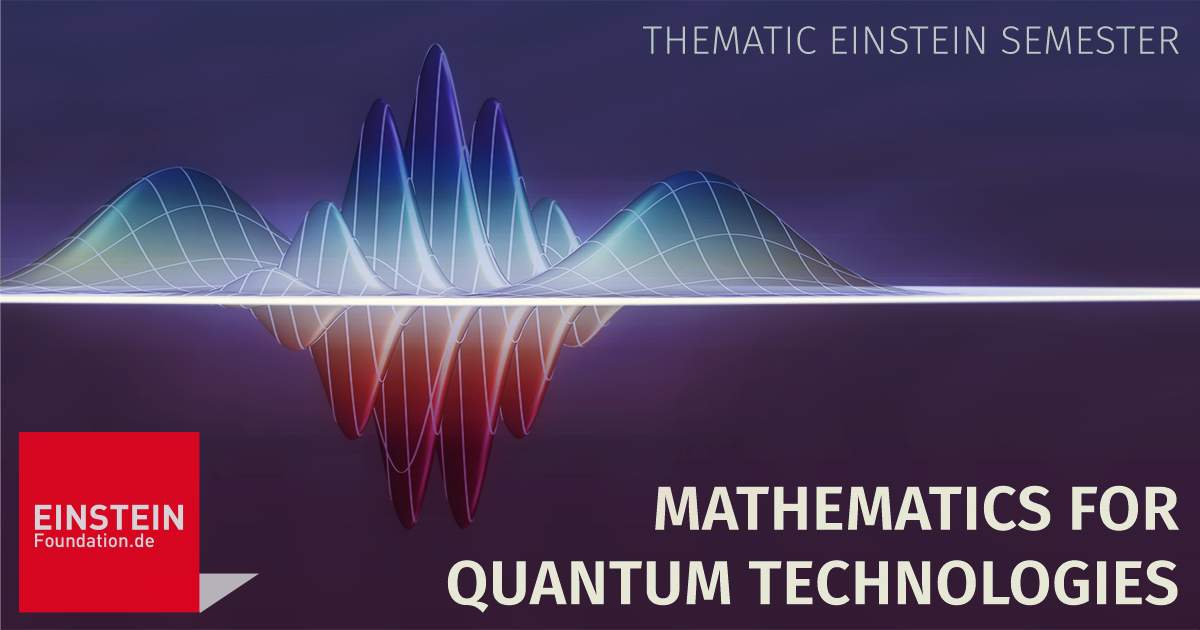
- 2024-03-03 – APS March Meeting (Minneapolis)
Lasse will give a talk on our recent results on Optimal Control of a SiGe-Quantum Bus for Coherent Electron Shuttling in the Presence of Material Defects> at the APS March Meeting 2023 in Minneapolis. - 2024-02-12 – Research Visit UNSW Sydney
As a part of the Leibniz Delegation Tour to Australia, Markus will visit Sven Rogge and Susan Coppensmith at the UNSW Sydney. - 2024-01-02 – Welcome Abel Thayil
We are pleased to welcome Abel Thayil as a post-doc in our group. He will work on the theory of silicon quantum electronics and the modeling of nanostructures. - 2023-12-22 – New Preprints
Just before the end of the year, we completed two preprints. The first one is on Bayesian inference of laser noise characteristics, the second on optimal control of a SiGe-quantum bus. Both preprints appeared in the WIAS-Preprint series. - 2023-10-31 – Silicon Quantum Electronics Workshop (Kyoto)
We will present our results on Optimal Control of a SiGe-Quantum Bus for Coherent Electron Shuttling in Scalable Quantum Computing Architectures> at the SiQEW 2023 in Kyoto. - 2023-11-13 – Research Visit Copenhagen
Lutz has been invited for a reserach visit to the DTU Copenhagen ("Machine Learning in Photonic Systems", Darko Zibar). - 2023-09-18 – NUSOD Conference 2023: Top-10 Paper
We participate in the NUSOD 2023 (Numerical Simulation of Optoelectronic Devices), where Lutz will give a talk on our activities on Bayesian regression of frequency noise characteristics in semiconductor lasers. Our paper was ranked among the top-10 submissions. - 2023-07-03 – Workshop on Nonlinear Dynamics in Semiconductor Lasers
We co-organize the workshop NDSL 2023 to be held on July 3–5 at WIAS. Lutz will give a talk on our activities in modeling of laser noise and estimation of laser linewidth on Tuesday. - 2023-06-25 – Meet us at the World of Quantum / Laser World of Photonics Congress in Munich
We particpate in the World of Quantum 2023 and Laser World of Photonics Congress in Munich. - 2023-06-17 – Lange Nacht der Wissenschaften / Long Night of Science
Lasse will present our activities at the Long Night of Science at the WIAS Booth in the Atrium of the Leibniz Association Headquarters. Click here for details. - 2023-06-12 – International Workshop on Computational Nanotechnology
Our recent results on modeling of SiGe Spin Qubit Shuttles will be presented by Lasse at the IWCN 2023 in Barcelona. - 2023-05-15 – Conference on Nonlinear Dynamics
Lutz will present our results on Bayesian methods for laser linewidth estimation at the CSNDD 2023 in Marrahech. - 2023-05-12 – New Preprint
We submitted our preprint on Bayesian estimation of laser linewidth from delayed self-heterodyne measurements, which is now available on arXiv. - 2023-04-27 – New Publication in Optics Express
Our paper on evaluation of delayed self-heterodyne laser linewidth measurements has appeared in Optics Express. We are grateful to MATH+ for the financial support. - 2023-04-18 – Job Advertisement: Post-Doc Position
We are offering a Post-Doc postion for two years. See the job advertisement here. - 2023-04-17 – Leibniz MMS Days 2023
Lasse has presented a poster on Device-Scale Simulation of a SiGe Quantum Bus for Coherent Spin-Qubit Shuttling at the Meeting of the Leibniz Network "Mathematical Modeling and Simulation" in Potsdam. - 2023-04-03 – Research Visit Einhoven
Markus has been invited by Oliver Tse for a visit at the Centre for Analysis, Scientific Computing and Applications (CASA), TU Eindhoven, to discuss modeling and optimal control of open quantum systems. - 2023-04-01 – Start of MATH+ Project AA2-17
Today our new project AA2-17 within the Cluster of Excellence MATH+ starts together with Tobias Breiten (TU Berlin). The goal of the project is the modeling, simulation and optimal control of quantum bus shuttles for future quantum computers based on gate-defined semiconductor quantum dots. Our work is carried out in close collaboration with experimental physicists from JARA FIT Institute for Quantum Information and RWTH Aachen University. - 2022-12-15 – New Preprint on Theory of Laser Linewidth Measurement
We have submitted a preprint on self-heterodyne laser linewidth measurement. Using parametric Wiener filters, we demonstrate how to extract the phase noise power spectral density from experimental time series data without any artifacts even at strong measurement noise levels. - 2022-12-05 – Winter Quantum Networking
We have presented our research on the Winter Quantum Networking meeting of the Optics & Photonics Cluster Berlin-Brandenburg. - 2022-09-13 – Project Approval
We are delighted to have acquired a new project AA2-17 on "Coherent Transport of Semiconductor Spin-Qubits: Modeling, Simulation and Optimal Control" in the MATH+ Cluster of Excellence together with Tobias Breiten (TU Berlin). The project will start in April 2023 and is devoted to modeling of qubit shuttles for quantum computers based on quantum dots in SiGe-heterostructures in cooperation with RWTH Aachen. - 2022-09-12 – NUSOD 2022: Top 10 Paper
Lutz will present our work on data-driven modeling of non-Markovian stochastic laser dynamics and parameter estimation (Kalman filtering) at the NUSOD 2022 (online). We are proud that our contribution was ranked among the top ten submissions. - 2022-09-04 – DPG Spring Meetings (Condensed Matter Section)
Our recent advances on modeling of SiGe-based quantum bus devices will be presented by Lasse at the DPG Spring Meeting of the Condensed Matter Section (Regensburg).
Funding
Projects in the Cluster of Excellence MATH+
-
MATH+ AA2-17: Coherent Transport of Semiconductor Spin-Qubits: Modeling, Simulation and Optimal Control
PIs: T. Breiten (TUB), M. Kantner (WIAS) and T. Koprucki (WIAS)
Staff: L. Ermoneit (WIAS)
Runtime: 04/2023 – 03/2026 -
MATH+ AA2-13: Data-Driven Stochastic Modeling of Semiconductor Lasers
PIs: U. Bandelow (WIAS), M. Kantner (WIAS), W. Stannat (TUB) and H. Wenzel (FBH)
Staff: L. Mertenskötter (WIAS)
Runtime: 01/2022 – 12/2024 -
MATH+ IN-7: Electronic Properties of Gate-Confined Quantum Dots in Si-Ge Heterostructures for Qubit Generation
PIs: T. Koprucki (WIAS), A. Mielke (WIAS), T. Boeck (IKZ) and O. Brandt (PDI)
Staff: O. Marquardt (WIAS)
Runtime: 01/2022 – 12/2022
Research & Development Projects
-
Simulation of External Cavity and Multi-Section Semiconductor Lasers
PIs: U. Bandelow (WIAS), M. Kantner (WIAS) and M. Radziunas (WIAS)
Funding: Ferdinand-Braun-Institute Berlin
Runtime: 01/2021 – 07/2021
Events
- AMaSiS 2024: Applied Mathematics and Simulation for Semiconductor Devices
Organizers: P. Farrell (WIAS), A. Glitzky (WIAS), M. Kantner (WIAS), M. Liero (WIAS), M. O'Donovan (WIAS) and J. Weinbub (Silvaco)
Weierstrass Institute Berlin, 10–13 September 2024 - Quantum Optimal Control – From Mathematical Foundations to Quantum Technologies
Organizers: T. Breiten (TU Berlin), P. Gelß (Zuse Institute), M. Kantner (WIAS) und C. P. Koch (FU Berlin)
Zuse Institute Berlin, 21–24 May 2024 - NDSL 2023: International Workshop on Nonlinear Dynamics in Semiconductor Lasers
Organizers: M. Kantner (WIAS), M. Radziunas (WIAS), A. G. Vladimirov (WIAS) and H. Wenzel (FBH)
Weierstrass Institute Berlin, 3–5 July 2023



